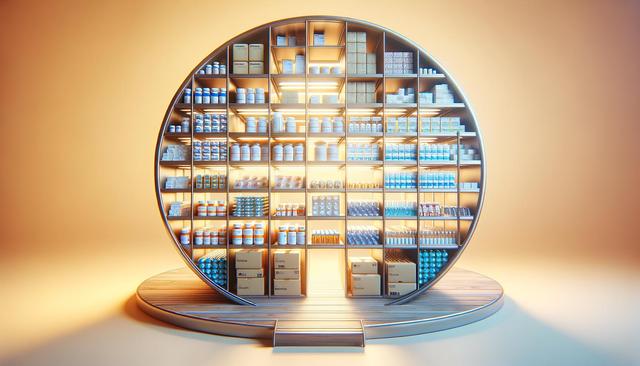Smart Storage Solutions for Home Use
Recent developments in smart home technology have extended into the realm of medication storage, offering more efficient and secure ways to manage prescriptions at home. These systems now incorporate features like temperature control, humidity monitoring, and even biometric access. By integrating with mobile apps, users can receive notifications for dosage times, refill alerts, and even safety warnings if the medication is stored improperly. This kind of connectivity is especially helpful for caregivers or families managing medications for elderly or chronically ill loved ones.
Some common features found in modern smart medication storage solutions include:
- Lockable compartments with fingerprint or facial recognition access
- Real-time tracking of medication adherence
- Alerts for expired or recalled medications
- Voice assistant integration for accessibility
These innovations not only enhance safety but also promote independence for individuals managing complex medication regimens at home.
Healthcare Facilities Embrace Centralized Systems
Hospitals and clinics are turning to centralized medication storage systems to reduce errors and improve efficiency. Automated dispensing cabinets and robotic storage units are increasingly common in these settings, streamlining inventory management and enhancing patient care. These systems can track every dose administered, maintain optimal storage conditions, and reduce the likelihood of human error.
Key benefits of centralized medication systems in healthcare facilities include:
- Minimized risk of medication mix-ups
- Time-saving automation for pharmacy staff
- Enhanced compliance with regulatory standards
- Improved security and controlled access
By investing in these technologies, healthcare providers can ensure more accurate and timely delivery of medications, which is crucial for patient outcomes and operational efficiency.
Temperature-Sensitive Medication Management
Many medications require specific temperature ranges to remain effective, making temperature-controlled storage increasingly important. Innovations in refrigeration units now offer more precise control and remote monitoring capabilities. Pharmaceutical-grade refrigerators and portable coolers with digital tracking systems help maintain the cold chain for vaccines, biologics, and other sensitive drugs.
Some of the modern tools supporting temperature-sensitive storage include:
- Bluetooth-enabled data loggers for real-time updates
- Cloud-based temperature monitoring systems
- Battery-powered portable coolers for transport
- Integrated alarm systems for temperature excursions
These technologies not only help preserve medication potency but also ensure compliance with health and safety regulations during storage and transportation.
Sustainable and Eco-Conscious Design Trends
As environmental concerns grow, the pharmaceutical industry is exploring sustainable medication storage solutions. Companies are designing storage units using recyclable materials and energy-efficient components. Solar-powered refrigeration units, for example, are becoming more viable in remote or off-grid locations. Biodegradable packaging and reusable containers are also gaining traction as alternatives to traditional plastic pill bottles.
Eco-conscious storage developments include:
- Energy-efficient refrigeration with low-GWP refrigerants
- Modular storage systems made from sustainable materials
- Smart dispensers that reduce packaging waste
- Refillable medication pods for ongoing prescriptions
These trends not only reduce the environmental footprint of medication storage but also align with global sustainability goals and consumer expectations.
Personalized Storage for Enhanced User Experience
Another significant trend is the move toward personalized medication storage solutions tailored to individual needs. From compact travel organizers with built-in timers to customizable pillboxes with adjustable compartments, consumers now have access to storage options that fit their unique routines. Digital pill dispensers can be programmed for complex regimens and provide visual or auditory reminders, making adherence easier for users of all ages and abilities.
Features of personalized medication storage include:
- Adjustable dosage compartments for daily or weekly use
- Color-coded systems for easy identification
- Portable and lightweight designs for travel
- Customizable alert settings via mobile apps
By focusing on user-centric design, these products empower individuals to take control of their health while simplifying the process of managing multiple medications.
Conclusion: Embracing the Future of Medication Storage
As medication storage continues to evolve, the emphasis remains on improving safety, convenience, and sustainability. Whether at home, in a healthcare facility, or on the go, new technologies are reshaping how we store and manage medications. For individuals, caregivers, and professionals alike, staying informed about these advancements offers a path to more effective and responsible health management. Embracing these trends can lead to better outcomes, reduced waste, and a higher standard of care across all settings.






